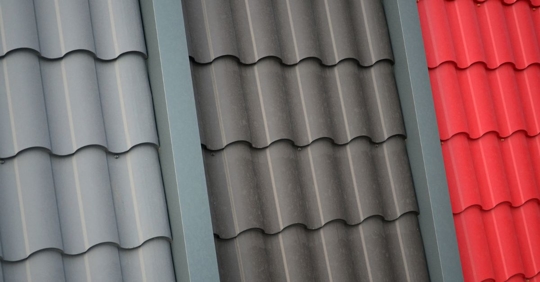When it comes to roofing, homeowners have a plethora of options to choose from, each with its own set of advantages and drawbacks. Understanding the lifespan of various roofing materials is crucial for making an informed decision. In this article, we will delve into the longevity, maintenance requirements, and other essential factors for different types of roofing materials, helping you choose the best option for your home.
Asphalt Shingles
Average Lifespan
Asphalt shingles are one of the most popular roofing materials in the United States, and for good reason. They offer a balance of affordability, durability, and ease of installation. On average, asphalt shingles have a lifespan of about 20 to 30 years. However, this can vary depending on the quality of the shingles and the environmental conditions they are exposed to. Premium asphalt shingles, for instance, can last up to 40 years, but they come at a higher cost.
Factors Affecting Longevity
Several factors can influence the lifespan of asphalt shingles. Climate plays a significant role; extreme weather conditions like heavy snowfall, high winds, and intense heat can accelerate wear and tear. The quality of installation is another critical factor. Poorly installed shingles are more likely to suffer from issues like leaks and blow-offs, which can significantly reduce their lifespan. Regular maintenance, such as cleaning gutters and removing debris, can also help extend the life of your asphalt shingles.
Maintenance Tips
To maximize the lifespan of your asphalt shingles, regular maintenance is essential. Start by conducting periodic inspections, especially after severe weather events. Look for signs of damage such as missing or curled shingles, and address these issues promptly. Cleaning your roof to remove moss, algae, and debris can also prevent premature aging. Additionally, ensure that your attic is well-ventilated to avoid heat buildup, which can cause shingles to deteriorate faster.
Metal Roofing
Average Lifespan
Metal roofing is known for its impressive durability and longevity. On average, metal roofs can last anywhere from 40 to 70 years, making them a long-term investment for homeowners. The exact lifespan can vary depending on the type of metal used and the quality of the installation. For instance, copper and zinc roofs can last over 100 years, while aluminum and steel roofs typically last between 40 to 60 years.
Types of Metal Roofing
There are several types of metal roofing materials to choose from, each with its own set of characteristics. Aluminum is lightweight and resistant to corrosion, making it ideal for coastal areas. Steel is durable and often coated with a protective layer to prevent rust. Copper and zinc are premium options known for their longevity and aesthetic appeal, but they come at a higher cost. Each type of metal roofing has its own lifespan and maintenance requirements, so it’s essential to choose the one that best suits your needs.
Pros and Cons
Metal roofing offers numerous advantages, including durability, energy efficiency, and low maintenance requirements. Metal roofs are also fire-resistant and can withstand extreme weather conditions, making them a reliable choice for many homeowners. However, there are some drawbacks to consider. The initial cost of metal roofing can be high, and the installation process is more complex compared to other materials. Additionally, metal roofs can be noisy during rainstorms, although this can be mitigated with proper insulation.
Wood Shingles and Shakes
Average Lifespan
Wood shingles and shakes offer a natural and rustic aesthetic that many homeowners find appealing. On average, wood shingles and shakes have a lifespan of about 20 to 40 years. The exact lifespan can vary depending on the type of wood used and the local climate. Cedar and redwood are popular choices due to their natural resistance to decay and insects, and they tend to last longer than other types of wood.
Impact of Environmental Factors
Environmental factors can significantly impact the longevity of wood shingles and shakes. High humidity levels and frequent rainfall can lead to issues like rot and mold, reducing the lifespan of the roof. UV exposure from the sun can also cause the wood to dry out and become brittle over time. In areas with extreme weather conditions, such as heavy snowfall or high winds, wood shingles and shakes may require more frequent maintenance and replacement.
Preservation Techniques
To extend the life of wood shingles and shakes, regular maintenance is crucial. Applying a water-repellent preservative can help protect the wood from moisture and UV damage. Regularly cleaning the roof to remove debris and moss can also prevent rot and decay. Additionally, it’s essential to inspect the roof periodically for signs of damage and address any issues promptly. Proper ventilation is also important to prevent moisture buildup, which can lead to mold and rot.
Tile Roofing
Average Lifespan
Tile roofing is renowned for its exceptional longevity, often lasting between 50 to 100 years. This makes it one of the most durable roofing options available. The lifespan of tile roofing can vary depending on the type of tile used and the quality of the installation. Clay and concrete tiles are the most common types, with clay tiles generally lasting longer than concrete ones.
Types of Tile Roofing
There are several types of tile roofing materials to choose from, each with its own set of characteristics. Clay tiles are known for their durability and resistance to fire and insects. They also offer a classic, timeless look. Concrete tiles are more affordable than clay tiles and can be molded into various shapes and styles. Slate tiles are another premium option known for their longevity and natural beauty, but they come at a higher cost and require a more robust roof structure to support their weight.
Cost vs. Longevity
While tile roofing has a higher initial cost compared to other roofing materials, its long-term durability makes it a cost-effective choice in the long run. The extended lifespan of tile roofing means that homeowners are less likely to need frequent repairs or replacements, which can save money over time. Additionally, tile roofs are energy-efficient and can help reduce heating and cooling costs, further adding to their cost-effectiveness.
Synthetic Roofing Materials
Average Lifespan
Synthetic roofing materials are a relatively new option in the roofing industry, offering a range of benefits and a lifespan that can vary widely. On average, synthetic roofing materials can last between 20 to 50 years, depending on the type of material used and the quality of the installation. These materials are designed to mimic the appearance of traditional roofing materials like wood, slate, and tile, but with added durability and lower maintenance requirements.
Types and Innovations
There are several types of synthetic roofing materials to choose from, including rubber, plastic, and polymer composites. Rubber roofing is known for its durability and resistance to extreme weather conditions. Plastic roofing is lightweight and easy to install, making it a popular choice for DIY projects. Polymer composites are designed to mimic the appearance of natural materials like wood and slate, offering a more affordable and low-maintenance alternative. Innovations in synthetic roofing materials continue to improve their performance and longevity, making them an increasingly popular choice for homeowners.
Environmental Impact
Synthetic roofing materials are often touted for their eco-friendliness. Many synthetic materials are made from recycled products, reducing the demand for new raw materials. Additionally, synthetic roofing materials are typically more energy-efficient than traditional materials, helping to reduce heating and cooling costs. Some synthetic materials are also recyclable at the end of their lifespan, further reducing their environmental impact. However, it’s essential to research the specific materials used in your synthetic roofing to ensure they meet your sustainability goals.
James Kate Roofing
Choosing the right roofing material for your home is a significant decision that can impact your home’s durability, energy efficiency, and overall aesthetic. By understanding the lifespan and maintenance requirements of different roofing materials, you can make an informed decision that meets your needs and budget. Whether you opt for the affordability of asphalt shingles, the durability of metal roofing, the natural beauty of wood shingles and shakes, the longevity of tile roofing, or the innovation of synthetic materials, regular maintenance is key to maximizing the lifespan of your roof.
If you’re considering a new roof or need expert advice on maintaining your existing roof, James Kate Roofing & Solar in Mansfield, TX, is here to help. Our team of experienced professionals can guide you through the process, ensuring you choose the best roofing material for your home. Contact us today to schedule a consultation and learn more about our roofing services.

